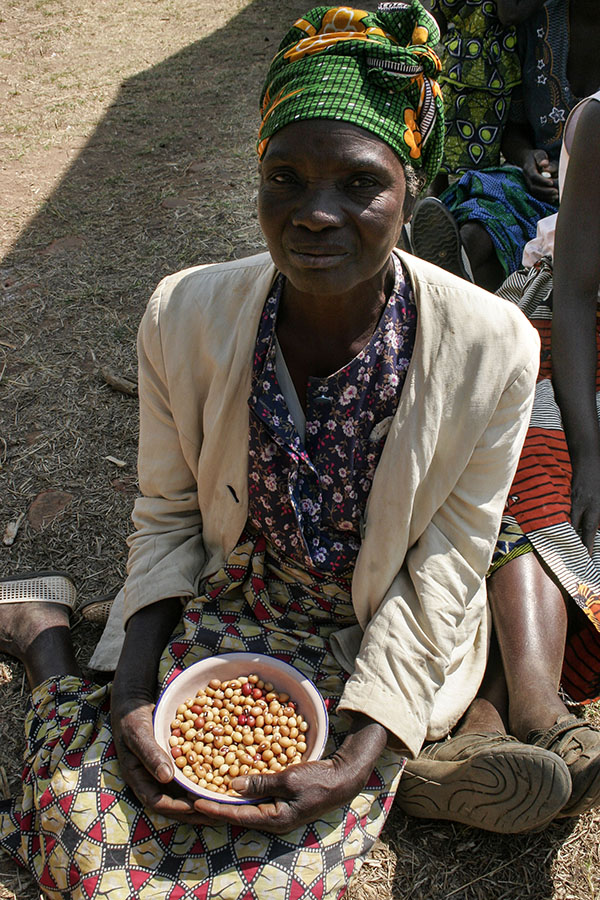
Bambara groundnut (Vigna subterranea), a greatly undervalued crop throughout sub-Saharan Africa, has been found to have a key role in belief systems across Malawi. The crop is highly important to women, who play a significant role in its production and marketing. This relationship provides both opportunities and risks associated with bambara groundnut development interventions, which are hitherto unrecorded.
For this year's International Women's Day, NRI would like to showcase not only the vital role of women's agency in farming systems, but also to demonstrate the complexity of rural livelihoods and belief systems from a gender perspective, and its implications for development practitioners.
Research by Lora Forsythe at NRI, in partnership with the Lilongwe University of Agriculture and Natural Resources, Malawi and with support from the Collaborative Crop Research Program of the McKnight Foundation, looks into these veiled and often unspoken relationships.
Bambara groundnut is a traditional, highly nutritious food plant in Africa. It is drought tolerant and contributes to soil fertility, making it important for adaptation to climate change. However, despite these benefits, production and consumption of bambara remain low, and market opportunities under-exploited.
Initial value-chain research in East Africa led by Ben Bennett at NRI aimed to identify and address constraints in bambara markets, and came across a number of different beliefs associated with the production and consumption of the crop. The gender, beliefs and taboos study that followed found that gender and local belief systems strongly defined who should grow bambara, benefit from its sale, and consume it.
Focused on rural Malawi, the research found that women play a pivotal role in all aspects of production and postharvest activities of bambara, and the women consulted during the study stated that they have more control over the income from the sale of the crop compared with other crops such as maize and cassava.
The strong role of women in bambara cultivation is associated with the belief that only women who have lost a child can grow the crop. It has been believed that the crop invites death to the household, but if a mother has already lost a child, they would be spared another death.
Beliefs and taboos restrict men from many activities relating to the crop and in some cases, even touching the seed and consuming it.
Other powerful symbolic meanings of bambara include fertility, healing and protection, and it has been widely used in traditional medicine and spiritual practices. These meanings have developed into a set of socio-cultural practices and rules for communities to follow that affect the daily life of rural Malawians of different ethnic groups.
These issues have important implications for interventions targeting other specific crops, even minor crops. In this case, there is an opportunity to increase the income of women by improving commercial opportunities for bambara products. However, women stated that their benefit could be threatened as they are often excluded when crops become more profitable, and were keen to work with project staff to ensure their participation in future activities.
Therefore, future development interventions must ensure women's continual participation and benefit at all stages, actively engaging with and being shaped by women's values, goals and decision making.
Based on a paper, to be published: Birth, death, love and infidelity: gendered beliefs and taboos around Bambara Groundnut in Malawi By Lora Forsythe, Mala Nya Manda, Agnes Mbachi Mwangwela and Ben Bennett.
Initial study: Bennett, B., Omari Mponda, Agnes Mwangwela, Bakari Kidunda, Donald Makoka, Vanancio Salegua (2012) Bambara Groundnut: A Situation Analysis for Malawi, Mozambique and Tanzania Value chain analysis: summary of findings.

